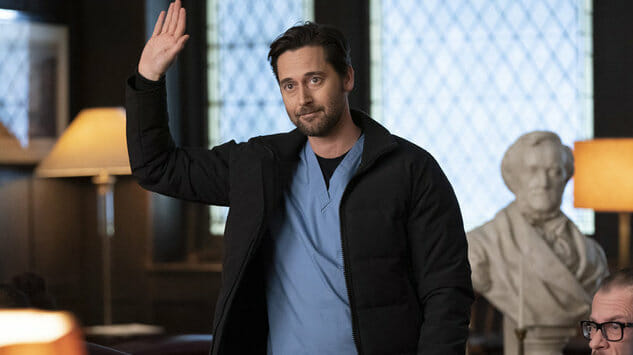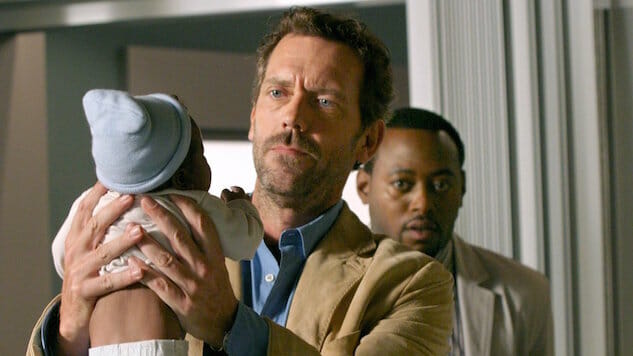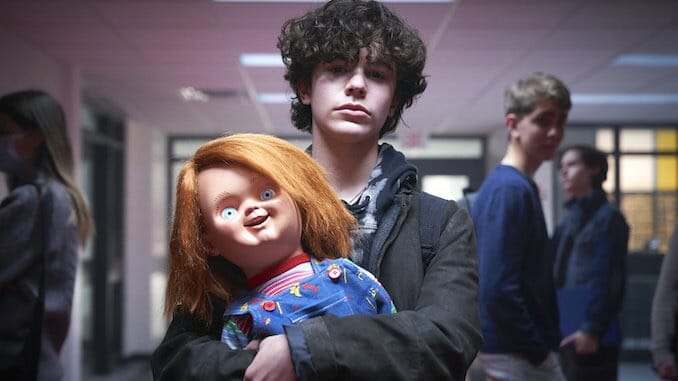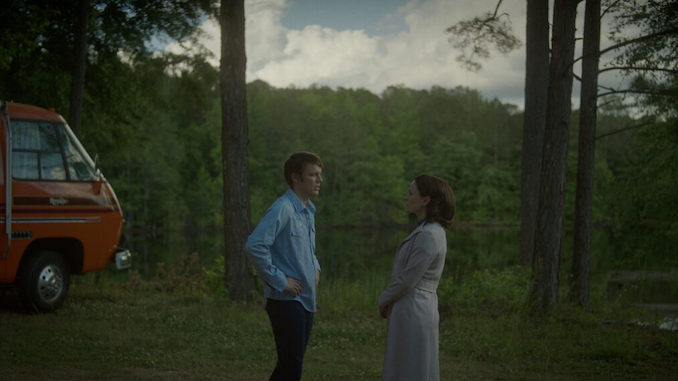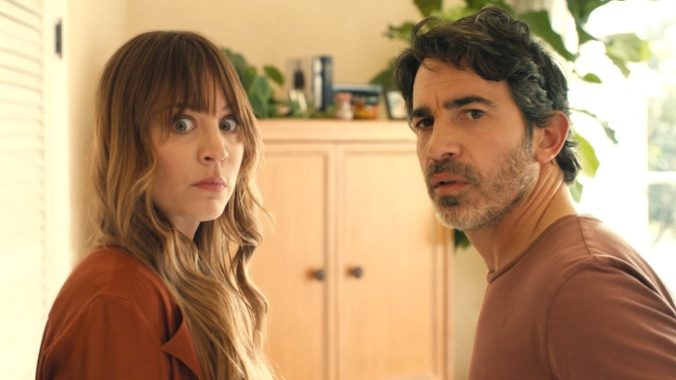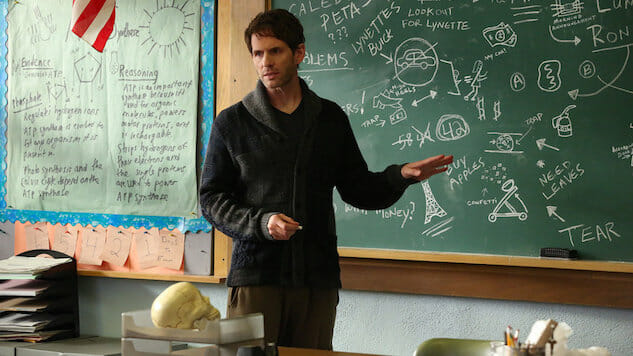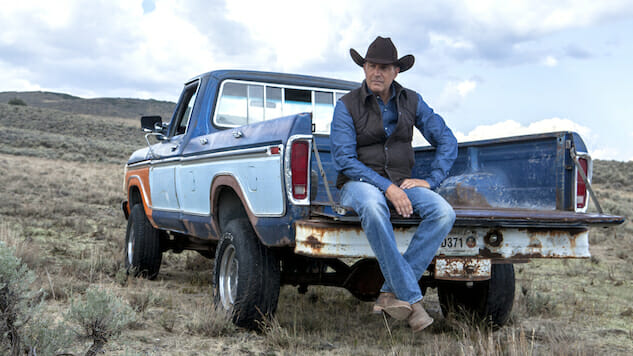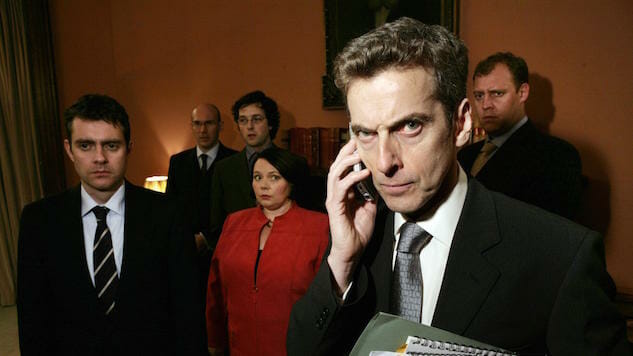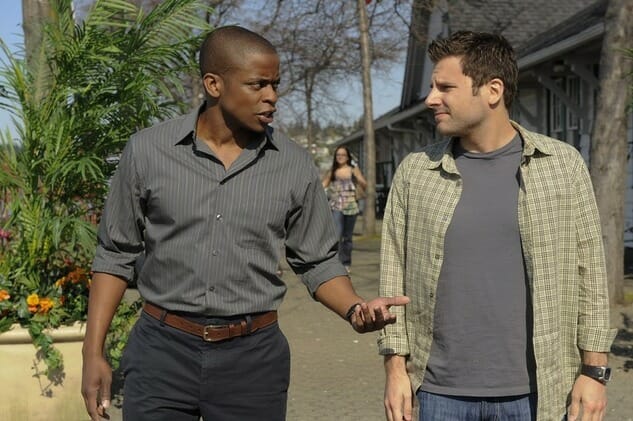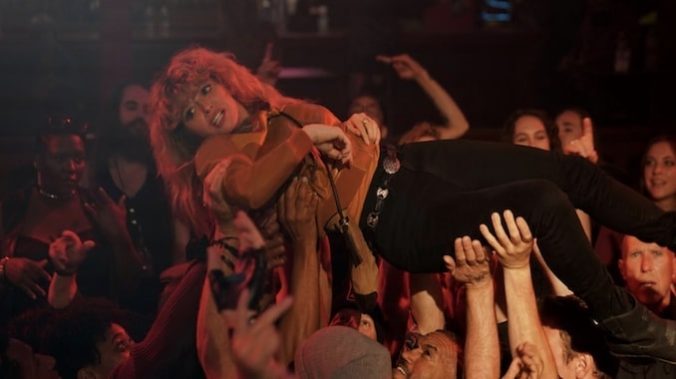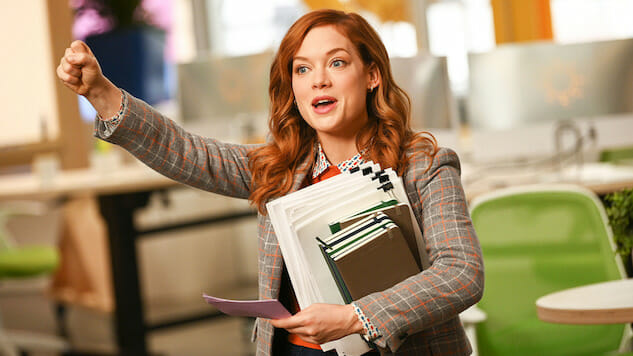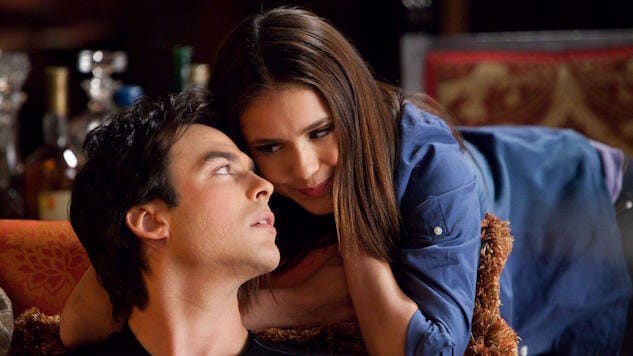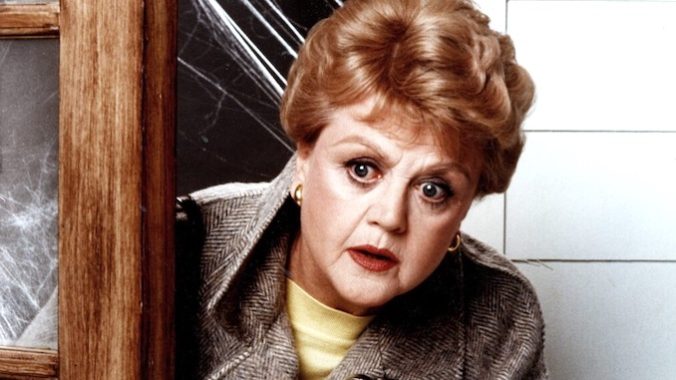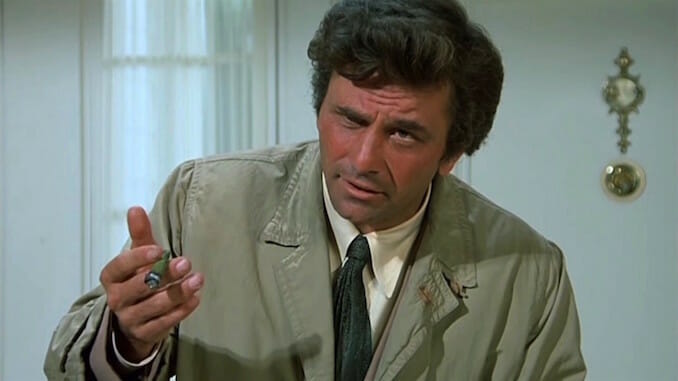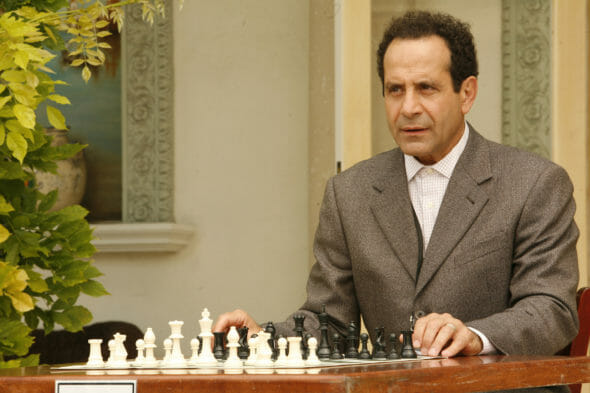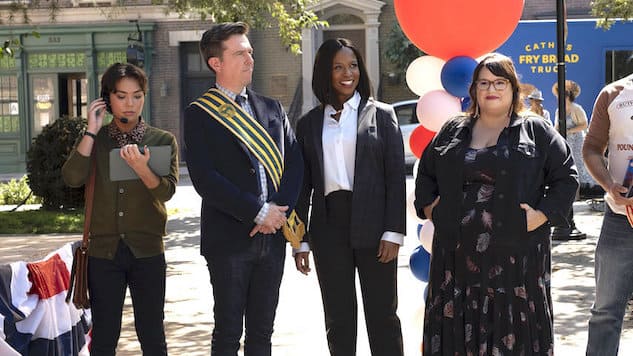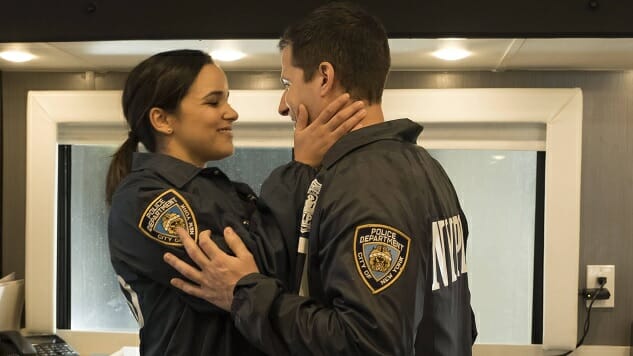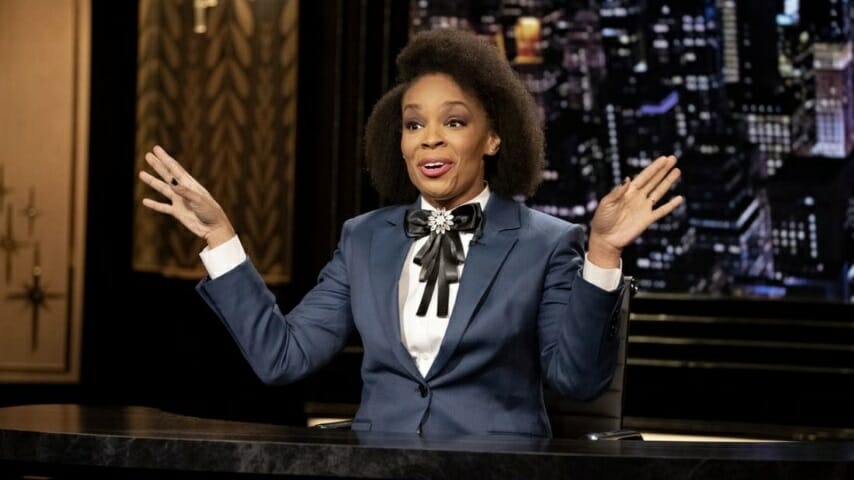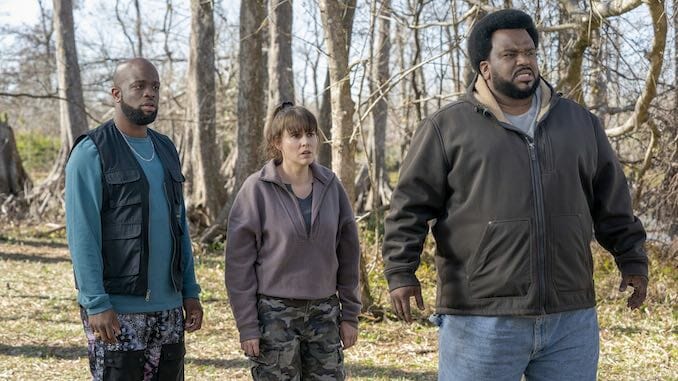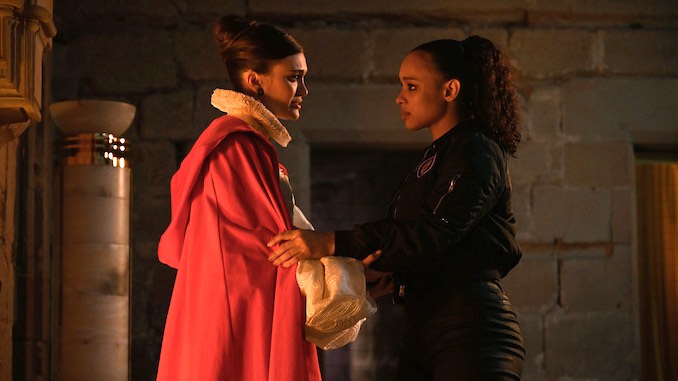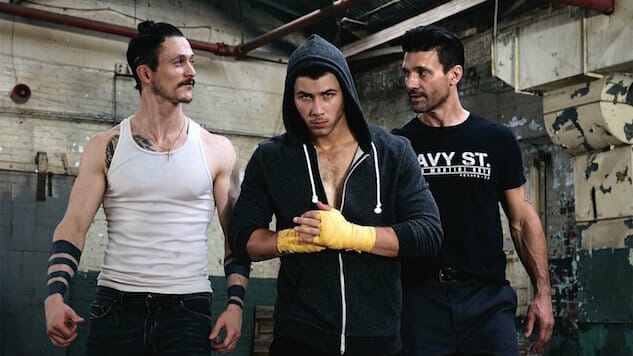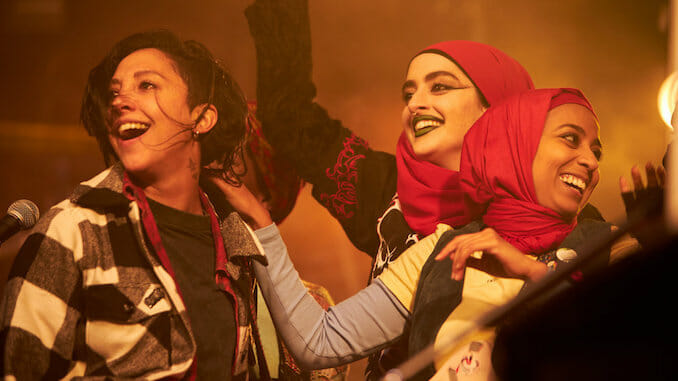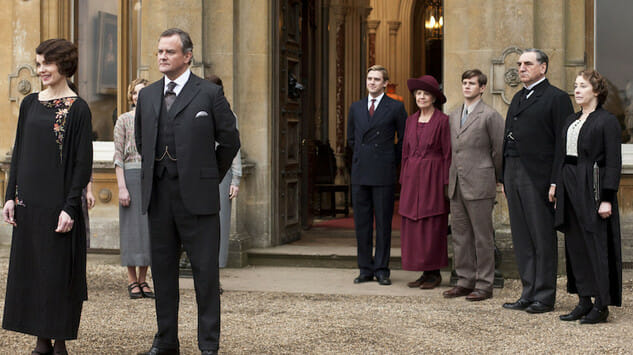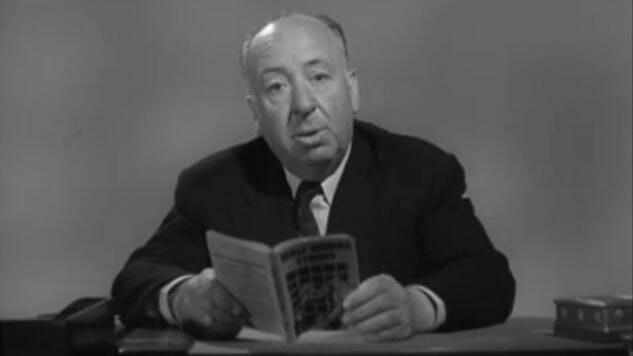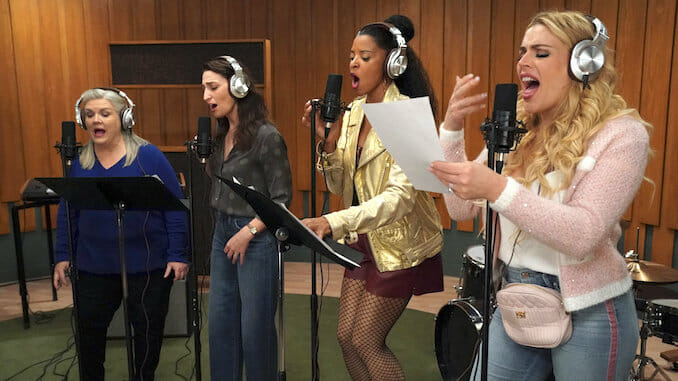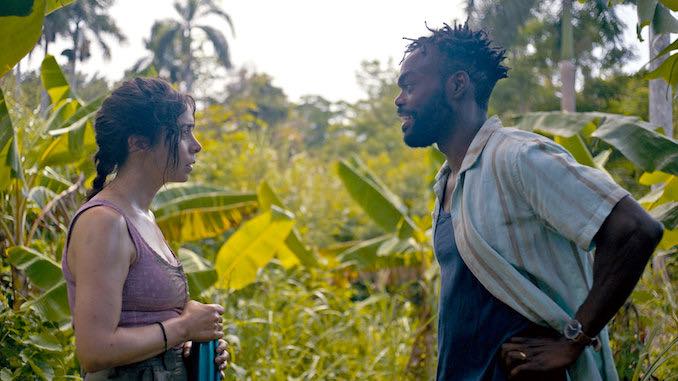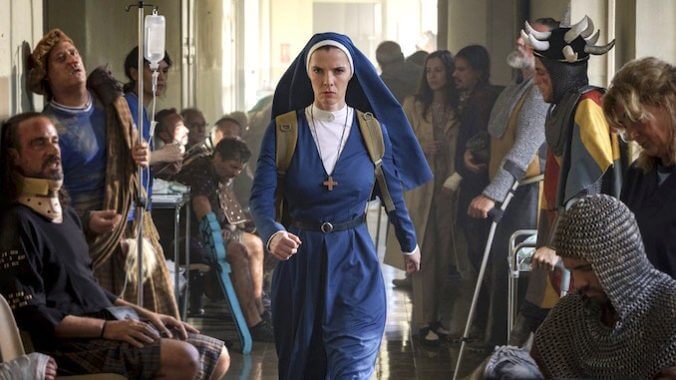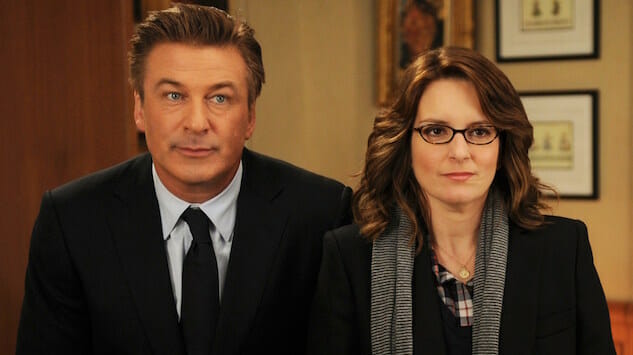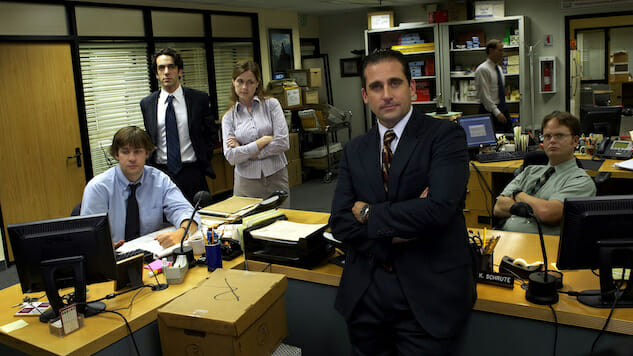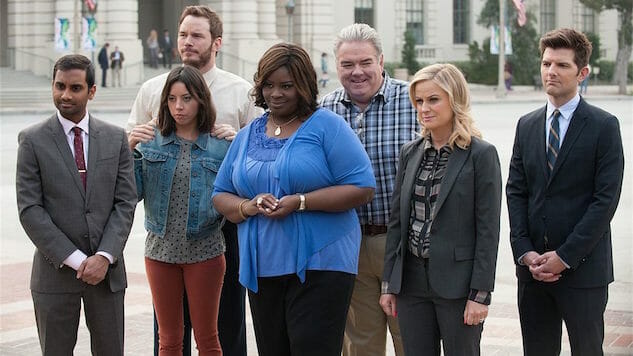The 40 Best Shows on Peacock
Photo Courtesy of Peacock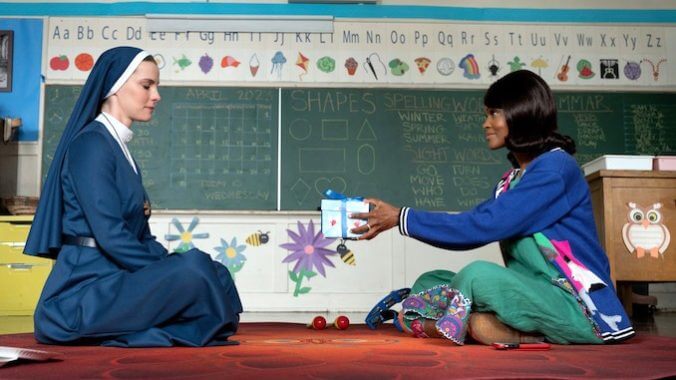
In a sea of streaming choices, NBC Universal’s late-entry platform Peacock has gotten a little lost. Many of NBC’s favorite classic series and sitcoms had been available on other streamers like Netflix and Hulu for a long time, but like Max and Paramount+, Peacock was created to bring all of NBC’s programming (and its affiliated cable channels, including USA and Syfy) into one studio-driven hub.
In addition to hits like Parks and Recreation and 30 Rock, Peacock has also dipped a toe into creating original programming. The results have been mixed. We Are Lady Parts, The Resort, and Poker Face shine in a sea of forgettable or mediocre offerings, while one of the platform’s best original series, Girls5eva, has moved to Netflix to continue its run there (though its first two seasons remain available to stream on Peacock too). We live in strange times! Elsewhere, Peacock also offers access to numerous sporting events, including the Olympics, which makes it a decent value for a lot of great programming.
Unfortunately, Peacock has done away with its free subscription tier. Its premium plan costs $7.99 a month (+tax) or $79.99 per year (+tax) rate (both of which are still ad-supported), which still makes it one of the more affordable streaming options. For an additional $6/month or $60/year, you can eliminate nearly all ads by subscribing to its Premium Plus plan (due to rights, some programs will still require ads).
So if you’re looking for a comfy binge or are open to discovering some new and interesting series, Peacock has you covered. Here are our picks for the 40 best to stream right now:
![]()
40. Bupkis
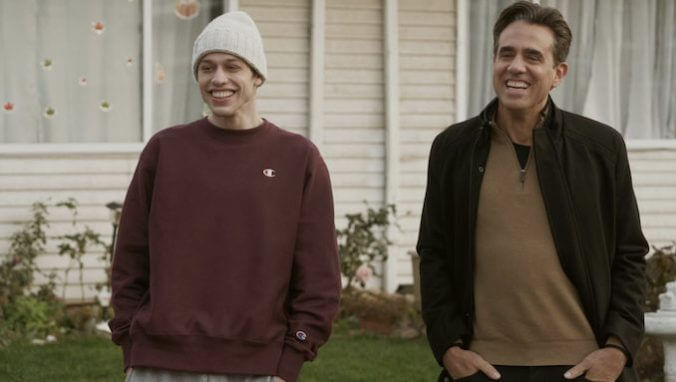
One wonders how many times a comedian/actor/writer can sell the same semi-autobiographical story successfully in a slightly different wrapping. But with Peacock’s eight-episode comedy series Bupkis, Pete Davidson is two for two so far. After 2020’s The King of Staten Island (which he co-wrote with Judd Apatow and Dave Sirus), the comedian doubles down on his “fictionalized” life in a meta approach that’s stuffed with Hollywood stars playing either one of his relatives or themselves.
We follow Davidson (apparently playing a “heightened” version of himself) in Staten Island, living with his mother (played by ex-Mrs. Soprano, a charming Edie Falco) who’s generally worried about him. Pete’s just doing what the Pete Davidsons of the world do on a regular basis: hanging out with his boys, smoking weed, jerking off, taking pills, and having fun in between gigs. His worry-free lifestyle is somewhat interrupted when he learns that his street-wise grandfather, Joe (Pesci), is dying of cancer. This unfolds in a heartfelt conversation between the two, where Joe says that all he wants is to spend more time with his grandson and get to know him better. This serves as a sort of wake-up call for Davidson to change his life, stop being a joke, and act like a man instead of a child. Bupkis nails a well-balanced mix of humor, self-awareness, and drama stemming from both reality and fiction, giving us a multi-flavored comedy that goes down easy. —Akos Peterbencze
39. Weeds
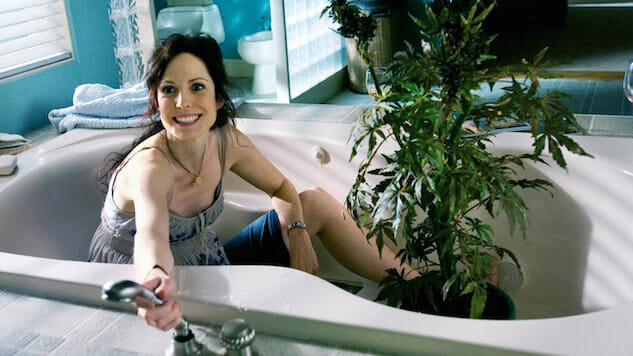
Before Walter White broke bad or Piper Chapman started selling panties, Weeds introduced us to the privileged protagonist who resorts to crime when faced with dire circumstances. In this case, meet Mary Louise Parker’s Nancy Botwin, a suburban mom-turned-marijuana dealer desperate to keep her family afloat after her husband dies of a heart attack. As with so many Showtime series, Jenji Kohan’s precursor to Orange Is the New Black skidded out of control as Nancy sunk deeper and deeper into the black market, but in its first season especially, Weeds offered a ballsy, bawdy send-up of conformist thinking and the American Dream, aided by gonzo comic support from Justin Kirk, Kevin Nealon, and the deliciously petty Elizabeth Perkins. Plus, its title sequence, featuring Malvina Reynolds’ 1962 ditty “Little Boxes,” is one of premium cable’s most memorable. —Matt Brennan
38. That ’70s Show
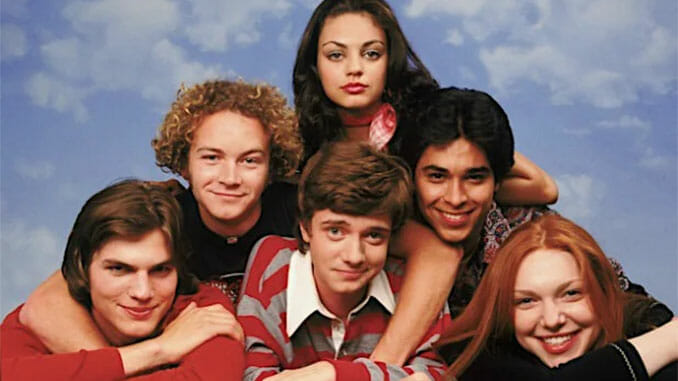
The long-running hit That ’70s Show relied heavily on the charisma of its cast to help buck up some frequently lackluster material. If you get annoyed by slick network sitcoms where every line is a joke and every character is apparently a one-liner comedian, you might struggle to keep this one down, but that extremely likable cast (including Topher Grace, Laura Prepon, Ashton Kutcher, and Mila Kunis) makes it hard to hate. Grace and Prepon are good enough actors to make you care about their conflicted boy-and-girl-next-door romance, and Kurtwood Smith and Debra Jo Rupp anchor the show as two of the best teen comedy parents ever seen on TV. Plus, it can serve as a double whammy of nostalgia—obviously it has you covered if you grew up in the ’70s, but it’s now been more than two decades since the show premiered, so you’ll probably feel an even more acute form of nostalgia if you grew up in in the late ’90s and early ’00s. —<i>Garrett Martin</i>
37. Everybody Hates Chris
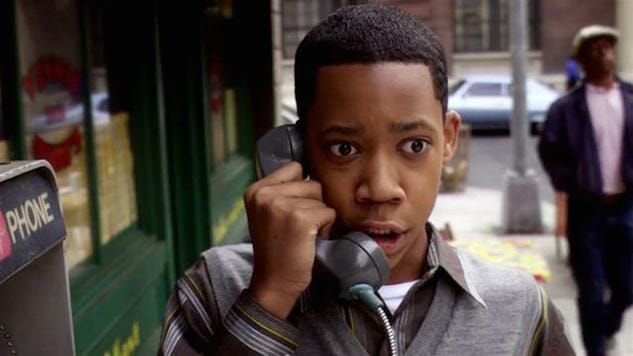
Chris Rock is one of the funniest comedians of all time. This is far from a controversial stance. Upon developing a period sitcom about his Brooklyn childhood for the (now defunct) UPN back in the mid-2000s, however, the question emerged of whether or not his brand of knowing, acerbic comedy could survive the transition to network TV. The answer proved to be both yes and no. From the opening seconds of its pilot, Everybody Hates Chris positions itself as an incisive, utterly confident comedic tour-de-force that is perfectly in line with Rock’s brand. And yet, in the hands of co-creator/showrunner Ali LeRoi, the show aimed to be much more than simply the comedian’s stage work reformatted into TV storylines. The result was a family sitcom that both harkened back to the Norman Lear comedies of old, while still retaining the rapid pace and tight construction of the best single-camera productions. The show was never more successful, however, than when it came to its casting, with Tyler James Williams demonstrating immense charisma and comic timing as a young Chris; meanwhile, Terry Crews and Tichina Arnold would promptly enter the pantheon of great TV couples as Chris’ larger-than-life parental units. And though low ratings and frequent schedule shifts would ultimately snuff Chris out after four seasons, it quickly sketched out its place as one of the greatest sitcoms of the new millennium. —Mark Rozeman
36. Ted
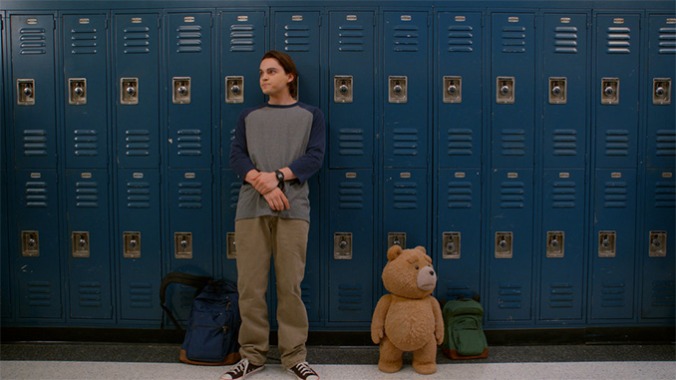
Set in the ‘90s as a prequel to the films of the same name, Peacock’s Ted is a surprisingly delightful watch. Following the titular bear in the aftermath of his Hollywood stardom, Ted showcases the blossoming relationship between Ted and a 16-year-old John Bennett (once played by Mark Wahlberg, now by Max Burkholder) as they navigate high school, family, and the pains of growing up. Coming from creator Seth MacFarlane, the series is filled to the brim with inappropriate humor (of course), an exorbitant amount of weed (naturally), and a walking, talking teddy bear that has the voice of Peter Griffin and the personality of your parents’ worst nightmare (what else did you expect?). But, when Ted allows its heartfelt moments to shine, especially when scene-stealer Blaire (Giorgia Whigham) is on screen, the series balances its juvenile humor with a beating heart, all culminating in a series that is ultimately a breezy and fresh binge watch, perfect for those that have seen the original films, while still being accessible to a new audience. —Anna Govert
35. Angelyne
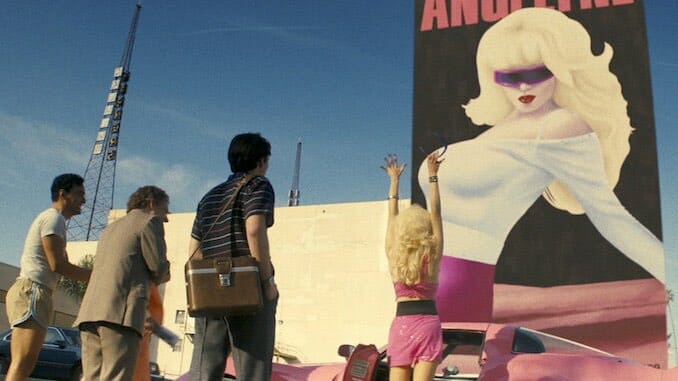
As a five-part biopic on Peacock, Angelyne tracks the story of its eponymous lead’s path to stardom. Rather than give her account of an unorthodox rise to fame linearly (in this case, a plot to literally raise her image on billboards above the rooftops of the City of Angels), Angelyne leans into the slipperiness of her mystique. Like her trademark pink Corvette that she races down the road, Angelyne wants the public to remain inescapable of her, while she always secures a quick getaway car. The series embraces these tensions. Using shell narrative techniques, the viewer gets glimpses of Angelyne through those who seek to trap her or track her down: jilted lovers (Lukas Gage), devoted assistants (Hamish Linklater), dogged journalists (Alex Karpovsky, Charlie Rowe). Through an overarching documentary frame of all these former documentarians, Angelyne’s story turns into a woozy blur of perspectives of her own alien persona. It becomes clear that Angelyne wanted to become a Barbie girl at any cost, but desired to live in a Barbie world of her own creation—a consuming ambition-cum-obsession. From a production standpoint, Emmy Rossum, both star and executive producer of the series, commits this continual splintering of Angelyne’s story almost to a fault. While Angelyne’s own narrative to herself becomes unreliable, the fractal framing and shifts into magical realism can make the series feel overstuffed, too imbalanced of a canvas for an already volatile source character. At same time, Angelyne, as a character for writing and within the plot, begs for maximalism. Her inability to live without it (or acknowledge a former self) proves to be the series’ most satisfying teaser. —Katherine Smith
34. Resident Alien
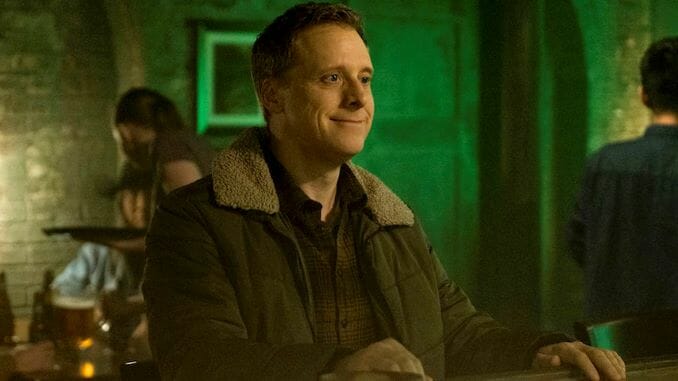
In Resident Alien, the fantastically talented Alan Tudyk finally gets to lead his own show in essentially a dual role as Dr. Harry Vanderspeigle and the alien who has secretly crash-landed on Earth and assumed the dead doctor’s appearance for safety. Much actual hilarity does ensue when the imposing local sheriff (Corey Reynolds) demands Vanderspeigle’s help in solving the murder of the lone town doctor in nearby Patience, Colorado. With an entertaining ensemble of quirky townspeople as support, the series unfolds like the mad cousin of Northern Exposure mashed up with John Carpenter’s Starman. And Tudyk is on point serving up a weekly master class in physical comedy and pitch-perfect line readings. Plus, there’s an inspired side plot about a single kid in town who can see what Harry actually is, and their mutual détente of deep dislike is sublime. Get on this one—it’s the tension release valve you need. —Tara Bennett
33. The Traitors
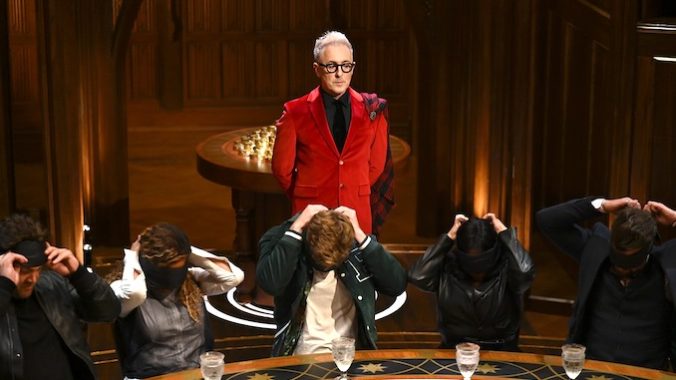
In The Traitors, a varying group of contestants—many “Faithful” and a few hand-selected “Traitors”—come together in Alan Cumming’s incredible Scotland castle to vie for a cash prize that they have to earn along the way through physically and intellectually challenging competitions. And all the while, the Faithfuls desperately try to banish the Traitors at their daily roundtables before the Traitors meet at the witching hour to decide which Faithful they would like to “murder” next. The show is effortlessly entertaining and has been a smashing success, with the first season of the hit reality competition series bringing together 10 celebrities and 10 “regular” folks to battle it out for the cash prize. The second season already dips into the “all-star” game with an entirely celebrity cast that doesn’t work nearly as well, but this series is still a juicy good time filled with pitch-perfect reality competition drama. —Jay Snow
32. New Amsterdam
“How can I help?”
When New Amsterdam, NBC’s break-the-system medical drama, first premiered as part of the network’s fall 2018 slate, this simple question was repeated so often and with such unflagging sincerity by Ryan Eggold’s pot-stirring medical director that even Paste’s own former TV editor, Matt Brennan (a self-proclaimed New Amsterdam apologist!), declared its “metronomic refrain” absurd. And yet, as anyone who watched the series grow into itself might tell you, Dr. Max Goodwin’s “How can I help?” has evolved from the kind of cheesy catchphrase my fellow critics derided as prime-time pabulum, to the kind of bullishly anti-cynical mission statement it’s hard not to find inspiring—not least coming from a blockbuster broadcast medical drama. Because here’s the thing: As many unbelievably sweeping, pie-in-the-medical-sky changes as Max seems to make at New Amsterdam in those first few episodes, the systemic injustices and bureaucratic nightmares baked into American healthcare are so deeply rooted that even a white savior complex as well-meaning and robust as Max’s has proven not nearly enough to dismantle it all in one go. Or two. Or three. Or a hundred. That’s okay. There’s more than enough of Dr. Max Goodwin’s brand of break-the-system fantasy not just to hold us for the moment, but to inspire more of us to turn to our communities and take up the metronomic refrain, how can I help? —Alexis Gunderson
31. The Lost Symbol
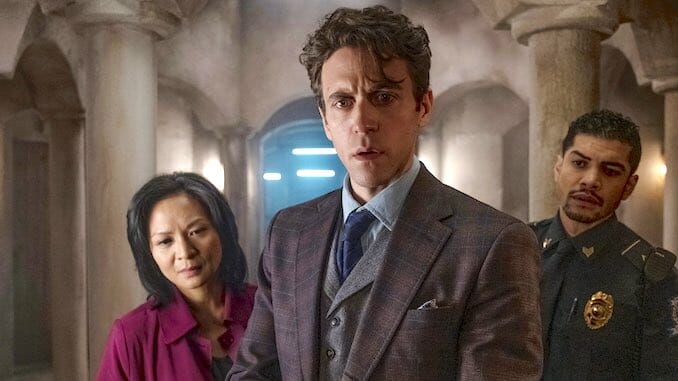
The tales of Robert Langdon and his hyper-specific expertise in deciphering ancient symbols captured movie-going audiences in the early 2000s with the The Da Vinci Code, a book-turned-film from author Dan Brown. In it, Langdon, a fictional Harvard University professor, becomes the prime suspect in a murder that only he can solve due to an unusual symbol on the dead body; escapades ensue. Fast forward to today and the Langdon character is back for a new adaptation in The Lost Symbol, this time investigating the disappearance of his mentor at the hands of a mysterious tattooed villain. The show, written and co-showrun by Dan Dworkin Jay Beattie, stars Succession’s Ashley Zukerman as an attractive, somehow younger version of the role that Hanks originated.
The series is your typical caper: After being summoned to Washington, D.C. under false pretenses, Langdon is thrown into a mystery that requires his specific knowledge and skill. Previous Dan Brown stories have relied heavily on interpretations of ancient Christianity and Catholic tales and symbols while injecting the story with a time-sensitive treasure hunt, and The Lost Symbol is no different. Episodes are fast-paced and engaging, making the series’ adventures with a familiar character freshly entertaining. —Radhika Menon
30. Saved By the Bell
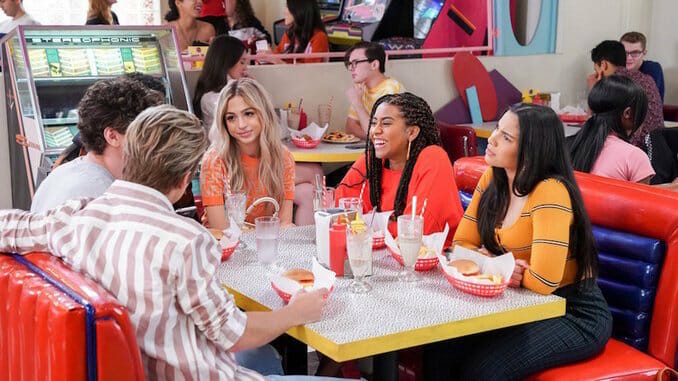
What could have been a cringe-inducing attempt to monopolize on existing IP, Peacock’s Saved by the Bell revival-slash-reboot is a surprisingly charming and self-aware comedy that recontextualizes the original show by not-so-subtly highlighting its flaws. Hailing from Tracey Wigfield, the show follows a new generation of students attending Bayside High, but while it largely features a young cast, it’s not a true reboot. Mark-Paul Gosselaar and Tiffani Thiessen reprise their roles as Zack and Kelly, now the governor and first lady of California, and when the former’s ineptitude results in the closure of many public schools throughout the state, students from lower income brackets find themselves attending well-funded school districts. This setup injects Bayside with a much-needed dose of reality. But Gosselaar and Thiessen aren’t the only familiar faces in the cast. Elizabeth Berkley and Mario Lopez reprise their roles as Jessie Spano and A.C. Slater, who both work for the school, while Lark Voorhies’ Lisa Turtle is a fashion designer who pops by. With Berkley and Lopez taking active roles in the narrative, Saved by the Bell appeals to both old and new viewers, which is one of the biggest signs of a successful revival. —Kaitlin Thomas
-

-

-

-

-

-

-

-

-

-

-

-

-

-

-

-

-

-

-

-

-

-

-

-

-

-

-

-

-

-

-

-

-

-

-

-

-

-

-

-

